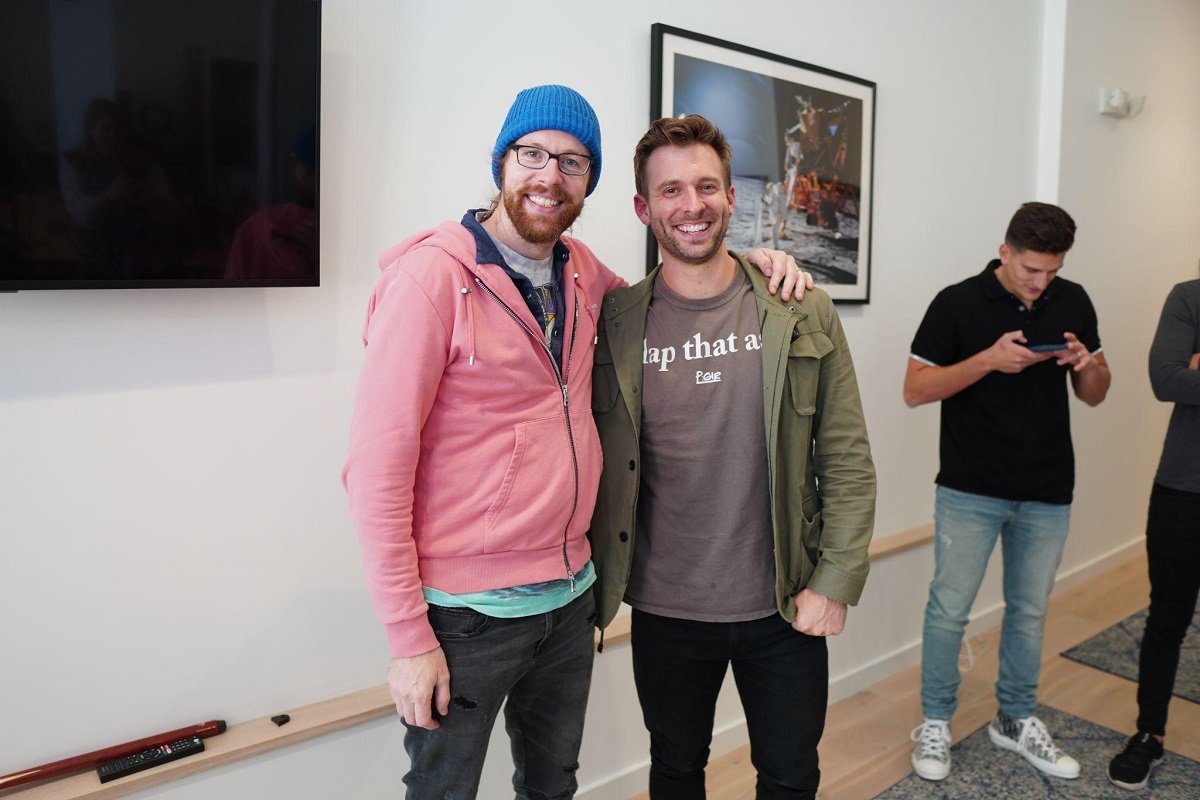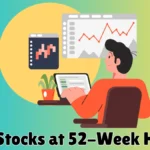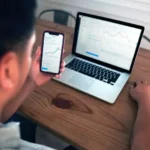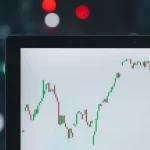Day traders, like superheroes, have their origin stories. And while day trader Ross Cameron was not bitten by a radioactive spider or dumped in a vat of toxic waste, the story of how he became a day trader is an interesting one.
Ross Cameron’s great-great uncle made a fortune in the stock market, and by the time he was in the fifth grade, his uncle’s children were still enjoying the wealth their ancestor had created for them. A couple of years later, during the dot-com bubble of the late 1990s, Ross Cameron’s middle school had its students create pretend stock portfolios, where they scanned The Wall Street Journal in class every day to pick stocks and then track their performance to see who could make the most pretend gains.

“To say I was inspired is an understatement,” says Ross Cameron.
An Early Introduction to Trading
A few years later, over summer during high school, Ross Cameron put $1,000 in a retail trading account with Ameritrade. He bought shares in companies he knew, like ExxonMobil, Caterpillar, U.S. Steel, and Pfizer.
“I was just trying my hand at investing,” he said. “I don’t think at that point I even realized there were stocks that moved enough in one day to make money as a day trader.”
By the end of the summer his portfolio was about even, and he made more money doing odd jobs like cleaning pools and mowing lawns.
“My odd jobs were about making just enough money to go to the movies and buy some candy. The stock market was about becoming wealthy,” Ross Cameron recalls. But his poor performance during the summer of 2001, left him with the feeling you needed a large account to make anything.
After high school, Ross Cameron went to college with the goal of becoming a teacher, and he didn’t think much about trading for several years.
Then Tragedy Struck
Tragedy came to Ross’s family in 2005 when his father was diagnosed with Stage IV lung cancer. He moved back home and was overcome with anxiety and panic attacks that had plagued him since middle school.
Doctors had told his family that his father had less than a year to live.
“A year after he was diagnosed he began to lose his balance and show signs of neurological decline,” Ross Cameron recalls. “His cancer had spread to his brain. I admired his strength, even in the worst moments. He often seemed to be in a dream state. In some way, this part of his life became very peaceful.”
So that he could stay close to home, Ross Cameron got a job working at the local Sunoco gas station.
“I didn’t enjoy it, but to get me through the days, I imagined a life where I owned my own little gas station,” Ross Cameron says of his early time back home during his father’s illness. “In my dream, I made just enough to pay my bills and get by. I enjoyed coming to work because I was my own boss.”
While his dream of owning his own gas station never came to fruition, Ross Cameron continued to carry the desire for the freedom of working for himself.
Ross’s father passed away in 2007 at the age of 61, and Ross struggled to find direction.
“I had immense anxiety and fear. I had moved down to New York City with a girlfriend, and I applied for a few internships while I finished my college classes,” he shares.
His application at a hedge fund was not accepted, but he found an internship at an architecture and design firm.
“That became my path for the next several years,” he says.
A Move Into the Markets
He received a Bachelor of Arts from Vermont College in 2009, but has never applied for a job since, or used his degree on his resume in any way.
“To be honest, I only graduated out of guilt to make my father proud,” says Ross Cameron.
When his younger sister turned 21, Cameron’s father’s estate was distributed equally between the siblings, with each sibling receiving $100,000. He thought about investing in real estate and becoming a landlord, but wasn’t able to get approved for a mortgage.
“The next logical place to put that money was into the market,” Ross Cameron says. “But I didn’t trust myself to manage it on my own, [so] I used a financial adviser.”
But at the time, the market was barely rebounding after the global financial crisis of 2008-2009, and returns were poor.
Ross Cameron Draws Inspiration From a High School Friend
Then Ross Cameron remembered a friend who had once made $16,000 trading a penny stock in high school.
“[He’d done it] sort of on a whim, and I thought if he can do it, I can do it,” Ross Cameron recalls. “I was definitely inspired by that memory when I started trading. And since I had a larger account, I started to think maybe it was possible to grow the account by 50% in one year ($200 per day) by trading penny stocks.”
It was the beginning of Ross Cameron’s two-year journey of learning how to day-trade. He tried a little of everything — from penny stocks and small caps, to large caps and options — but couldn’t find consistency.
“At that time, I wasn’t on a schedule of waking up at 8 in the morning. I was a freelance worker. I didn’t have a schedule to be in a nine-to-five. And I was sleeping until 9 or 10 a.m. and staying up till 2 or 3 in the morning.”
He committed to getting up at 8 a.m. so he could participate in the market.
“I remember the first day, I was like, ‘Why am I even doing this?’ But I knew I wanted to be involved in the market. I saw opportunity and I wanted to try to get a piece of it. And that meant first committing to a schedule, being able to sit from the markets every single day, just to observe and to learn,” Cameron explains.
He admits that in those early days he got in over his head frequently and lost real money. But he learned a lot about trading. Today, he’s the founder of Warrior Trading, an online trading platform for day traders of all skill levels. The platform and Cameron’s teachings are so popular, he’s amassed a 1 million-strong fan base on YouTube.
Disclaimer: The information provided in this article is for educational and informational purposes only and should not be construed as financial advice. The content is not intended to provide specific financial, investment, tax, legal, or accounting advice. You should consult with a professional financial advisor to determine what may be best for your individual needs. Trading in financial markets involves risk and is not suitable for all investors. Past performance is not indicative of future results.
Join 25,000+ smart readers—don’t miss out!








